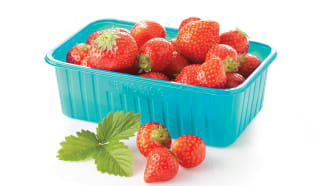
Ampacet ThermProtectTM product range reduces recycled PET thermal degradation and yellowing
Ampacet has introduced ThermProtectTM PET, a range of rPET stabilizing masterbatches that reduce yellowing due to polymer thermal degradation, enabling processors to increase the content of recycled PET in virgin material without compromising product aesthetics or performance.













